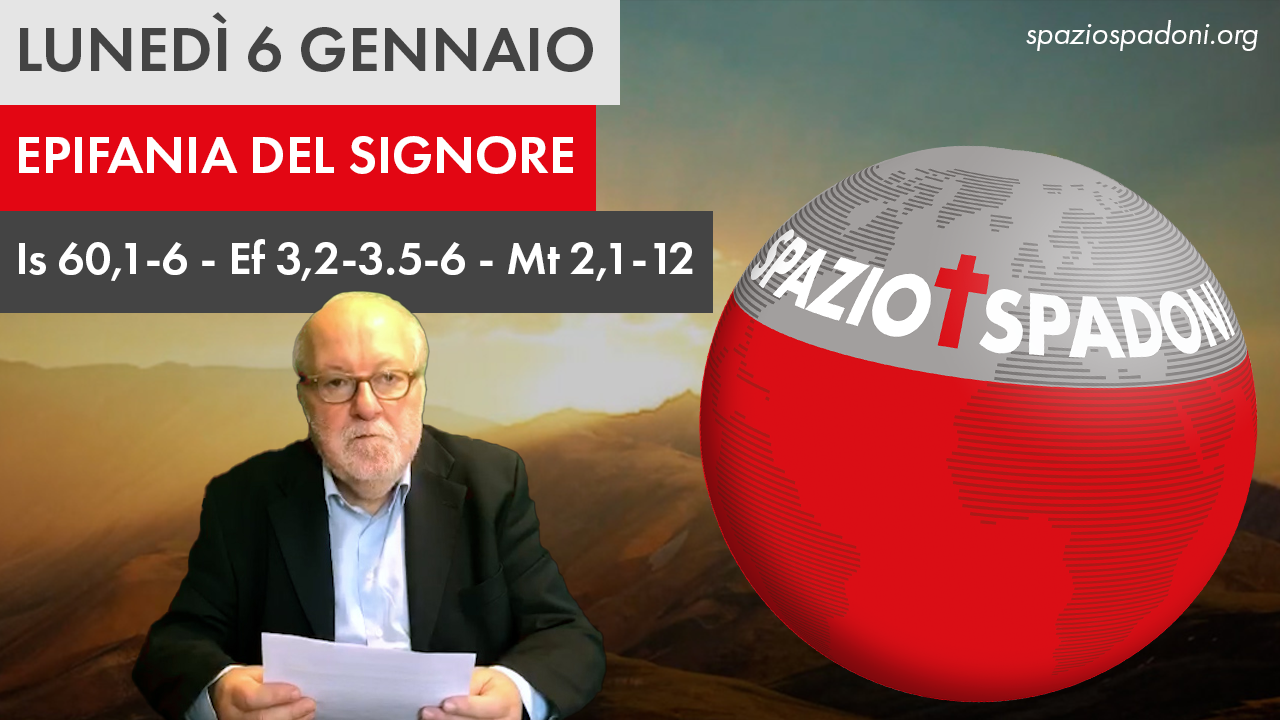
Epiphany of the Lord
Readings: Is 60:1-6; Ps 71; Eph 3:2-3. 5-6; Mt 2:1-12
“When Jesus is born some Magi appear who came from the east. This fact determined so much scandal in the church because the evangelist adopts the term “magician.” Magician is an activity forbidden by the book of Leviticus in chapter 19 and in the Talmud we even read “whoever learns anything from a mango deserves death.” So the first people to notice the birth of Jesus, the son of God, are foreigners, pagans and devoted to a scandalous, forbidden activity, the term magician indicates: deceiver, corrupter. Then the early Christian community provided to water down this term from magician to the more innocuous ‘Magi’” (A. Maggi). These “màgoi” are astrologers, who scrutinize the signs of the heavens. Herodotus, an ancient writer, states that the “Magi” constituted one of the six tribes of the Medes in Iran, a priestly caste.
However, whether they are sorcerers or learned astrologers, they are pagans, distant ones, who come after a long journey to worship the Lord.
The page of the Magi is a solemn declaration of missionary and universalism. This episode recalls the conclusion of the entire Gospel, “Go and make my disciples of all nations…” (Mt 28:18). Two missionary pages that open and close the story of Christ, with a difference: in the episode of the Magi it is the nations arriving in Jerusalem (First Reading: Is 60:1-6), at the end of the Gospel it is the Church sent to the world. This second annotation expresses more deeply the conception of mission as service, as going out of oneself to go in search of others: it is “the outgoing Church,” of which Pope Francis often speaks to us, “going out to others to reach the human peripheries” (Evangelii gaudium, no. 46).
Pope Francis wrote in his Message for the XCVIII World Mission Day 2024: “Mission is a tireless going out to all humanity to invite it to encounter and communion with God. Tireless! God, great in love and rich in mercy, is always going out to every man to call him to the happiness of his Kingdom, despite indifference or rejection. Thus Jesus Christ, the good shepherd and envoy of the Father, went in search of the lost sheep of the people of Israel and desired to go further to reach even the most distant sheep (cf. Jn. 10:16). He told the disciples, “Go!” both before and after his resurrection, involving them in his own mission (cf. Lk 10:3; Mk 16:15). For this reason, the Church will continue to go out beyond all boundaries, to go out again and again without growing weary or losing heart in the face of difficulties and obstacles, to faithfully fulfill the mission received from the Lord… And let us not forget that every Christian is called to take part in this universal mission with his or her own Gospel witness in every environment, so that the whole Church continually goes out with her Lord and Master to the “crossroads” of the world today. Yes, “today the drama of the Church is that Jesus keeps knocking on the door, but from within, because we let him out! So many times we end up being a Church… that does not let the Lord out, that keeps him as its ‘own thing,’ while the Lord came for mission and wants us to be missionaries” (Address to participants at the conference sponsored by the Dicastery for the Laity, Family and Life, Feb. 18, 2023). May all of us, the baptized, be ready to go again, each according to our own condition of life, to start a new missionary movement, as at the dawn of Christianity!” (n. 1).
In the Second Reading (Eph. 3:2-3, 5-6), to those who thought the call to salvation was exclusive to the Chosen People Israel, Paul reminds them that he was sent to proclaim that all, even the Gentiles, “are called, in Christ Jesus, to share in the same inheritance, to form the same body, to be sharers in the promises.” Pope Francis exhorts us, “Christ’s disciples-missionaries always have in their hearts concern for all people of every social or even moral condition. The parable of the banquet tells us that, following the king’s recommendation, the servants gathered ‘everyone they found, both bad and good’ (Mt. 22:10). Moreover, it is precisely “the poor, the crippled, the blind and the lame” (Lk 14:21), that is, the last and marginalized of society, who are the king’s special guests. Thus, the wedding banquet of the Son that God has prepared remains forever open to all, because great and unconditional is his love for each of us. ‘For God so loved the world that he gave his only begotten Son, that whoever believes in him should not be lost but have eternal life’ (Jn. 3:16)” (No. 3).
